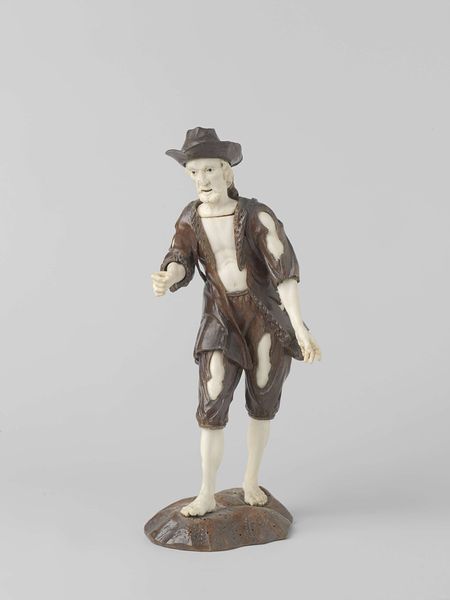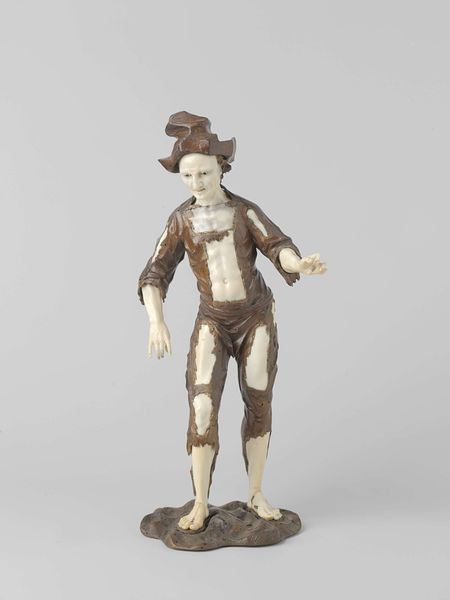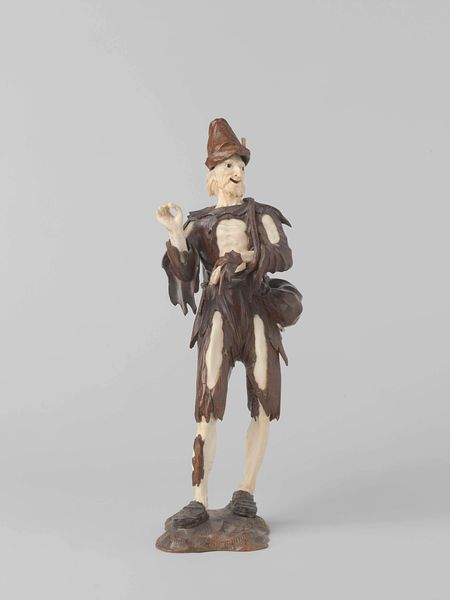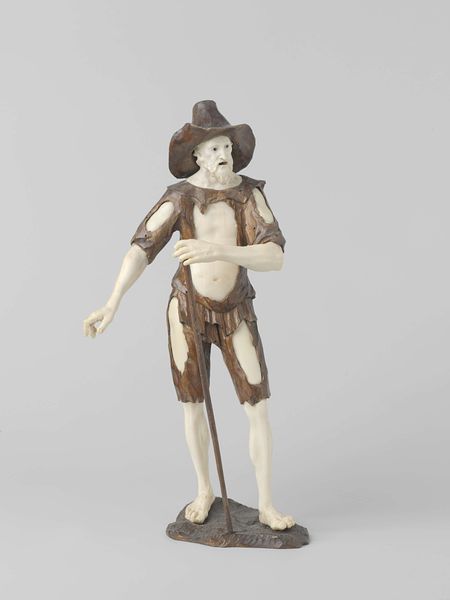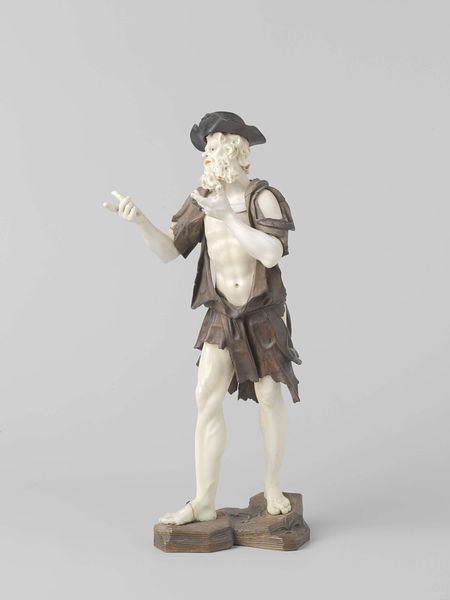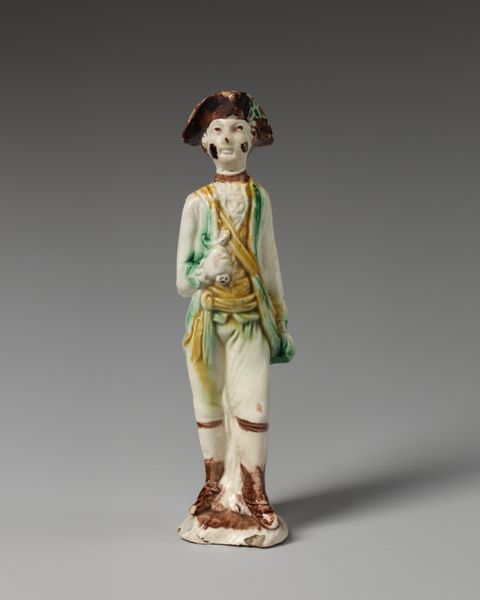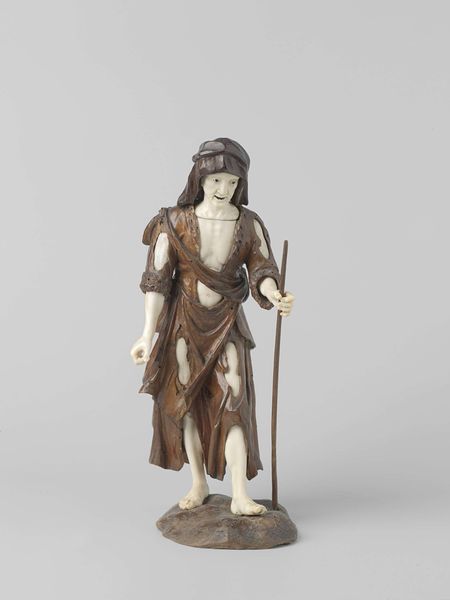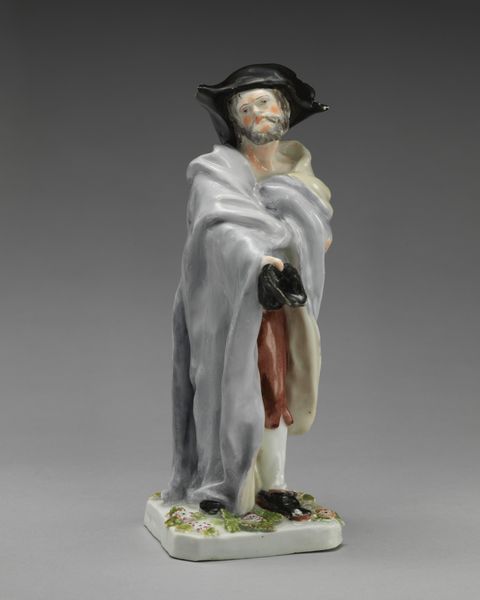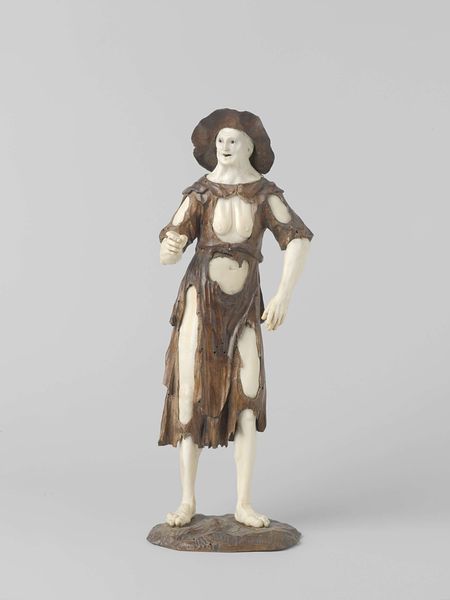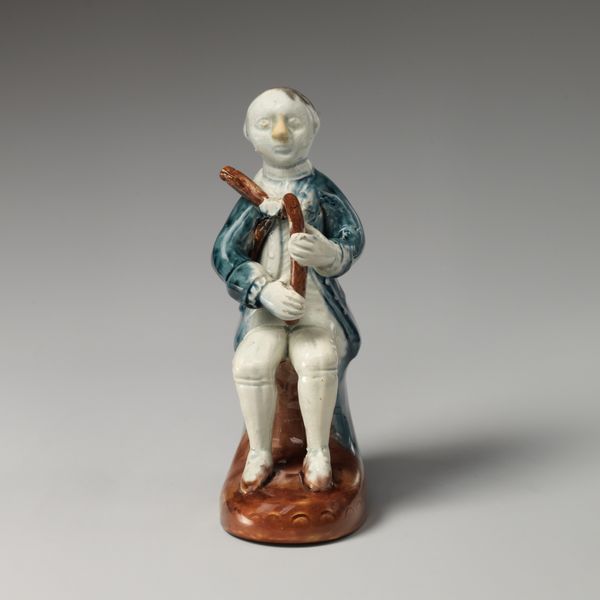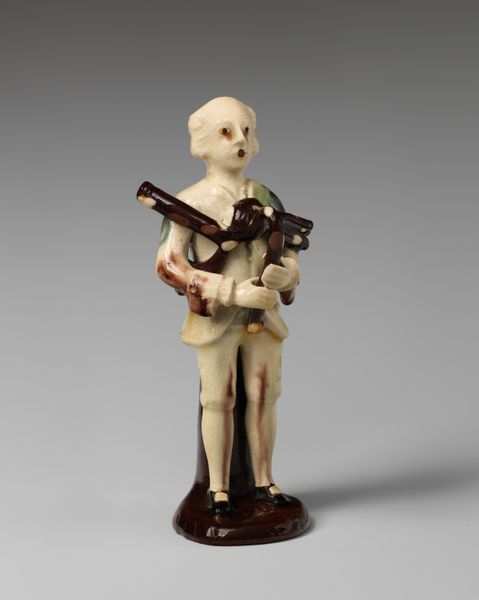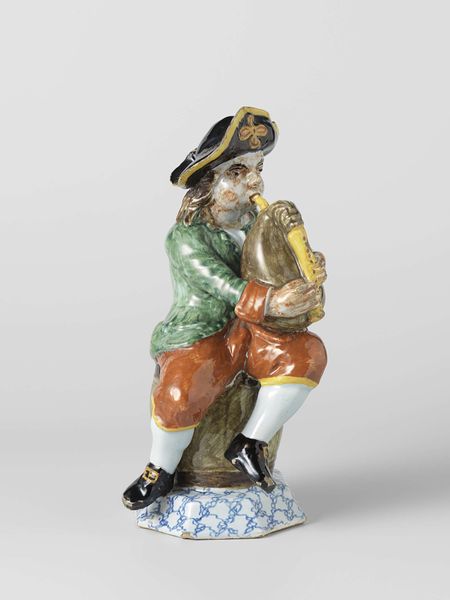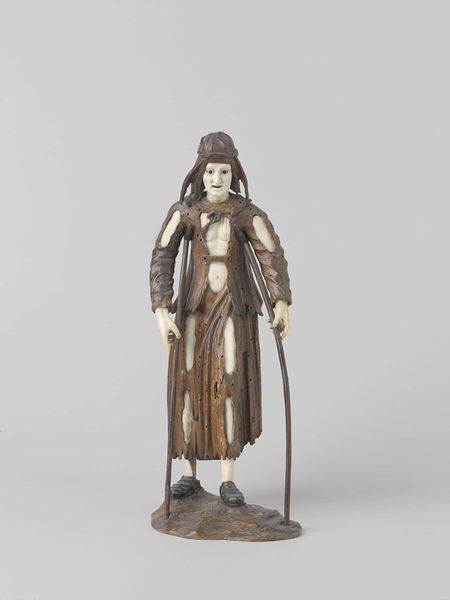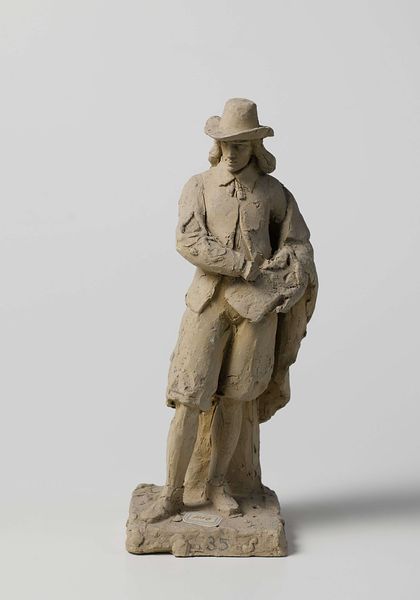
carving, wood
#
portrait
#
2d character
#
imaginative character sketch
#
carving
#
character design for game
#
3d character model
#
figuration
#
character sketch
#
character design
#
child character design
#
wood
#
character design for animation
#
child animation
#
3d character modeling
#
rococo
Dimensions: height 30 cm, width 9 cm
Copyright: Rijks Museum: Open Domain
Editor: Here we have Simon Troger's wood carving, "Begging Figure with a Stick," created before 1768. The figure is so strikingly rendered. I’m curious about what informed the artist's decisions regarding materials. What do you see in this piece? Curator: I see an object lesson, rendered in humble materials. This carving challenges the rococo tendency toward extravagant ornamentation and idealized subjects. Wood, as a readily available and worked material, grounds the piece in a reality of labor. Think about who might have had access to such a piece and how it serves as social commentary given the raw condition the figure is represented. Editor: So, the very act of using wood subverts expectations of fine art at the time? Curator: Precisely! Troger makes a statement by elevating the common experience, in rawly carved wood. How does the figure’s tattered clothing and walking stick emphasize material conditions? What do these features evoke about labor and the lived experience? Editor: I see your point. The clothes look like they are disintegrating. Was the wood chosen because of how easy it is to make it look worn down like the clothes or is it just easily obtainable for the artist? Curator: The deliberate use of such commonplace material forces the viewer to confront questions about economic disparity and perhaps the ethics of luxurious consumption in Rococo society. Troger gives tangible form to a social reality too often unseen or ignored in the decorative excesses of his time. The craftsmanship amplifies this message, creating an almost confrontational engagement with poverty. Editor: I see now, it's not just about the skill but about bringing societal awareness and making us question the lifestyle choices that impact lives, a stark comparison brought to life through the choice of simple wooden form. Curator: Indeed. Understanding art like this asks us to examine the economic systems that produce art *and* that shape the realities depicted within it. A conversation on consumption, social visibility, and wealth, literally carved into art.
Comments
No comments
Be the first to comment and join the conversation on the ultimate creative platform.
